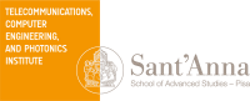Scope:
Digital Transformation (DT) is the process of using digital technologies to create new or modify existing processes. This transformation is performed in the context of business and by governments, NGOs, or other organizations. RPA, blockchain, and other technologies are important in this process, but our focus is on Artificial Intelligence (AI). It is essential to analyze not only its impact but also the way how it is managed.
List of topics of interest :
Topics of interest include (but are not limited to):
- DT and AI in the national government context
- DT and AI in the local government context
- DT and AI in cultural context
- DT and AI in the social context
- DT and AI in NGO context
- DT and AI for Sustainability
- DT and AI in the learning context
- DT and AI, challenges for Project Management
- DT in the business context and the role of AI
- DT and Network Science
Workshop Submission:
https://easychair.org/conferences/?conf=worldcistworkshops2023
Organizing Committee:
- Carlos J. Costa ISEG, Universidade de Lisboa Lisboa, Portugal,
This email address is being protected from spambots. You need JavaScript enabled to view it. - Valentina Timcenko, School of Electrical Engineering, Institute Mihailo Pupin, University of Belgrade, Belgrade, Serbia,
This email address is being protected from spambots. You need JavaScript enabled to view it.
Program Committee (Names and affiliations) (TBC)
- Andreas Karatsolis, Massachusetts Institute of Technology, USA
- Carlos Costa, ISEG, Universidade de Lisboa, Portugal
- Claudio Luis Larieira, EAESP/FGV, Brazil
- Clay Spinuzzi, The University of Texas at Austin, USA
- Concetta Semeraro, University of Sharjah, United Arab Emirates
- Fernando Bento, ISCTE-IUL, Portugal
- Georg Weichhart, PROFACTOR GmbH, Germany
- Hervé Panetto, CRAN, University of Lorraine, CNRS, France
- João Bastos, ISEG, Universidade de Lisboa, Portugal
- Joaquim Reis, ISCTE-IUL, Portugal
- Lazar Berbakov, Institute Mihailo Pupin, University of Belgrade, Serbia
- Manuela Aparicio, NOVA Information Management School (NOVA IMS), Universidade Nova de Lisboa, Portugal
- Marius Branzila, Gheorghe Asachi Technical University of Iasi, Romania
- Martinha Piteira, IPS - ESTSetúbal, Portugal
- Mijail Naranjo, NOVA Information Management School (NOVA IMS), Universidade Nova de Lisboa, Portuga
- Milan Zdravković, Faculty of Mechanical Engineering, University of Nis, Serbia
- Nikola Davidovic, Faculty of Electrical Engineering, University of East Sarajevo, Bosnia and Herzegovina
- Reiko Hishiyama, Waseda University, Japan
- Slavica Bostjancic Rakas, Institute Mihailo Pupin, University of Belgrade, Serbia
- Thomas Tiam-lee, De La Salle University, Philippines
- Valentina Timcenko, Institute Mihailo Pupin, University of Belgrade, Serbia
- Vitor Santos, NOVA Information Management School (NOVA IMS), Universidade Nova de Lisboa, Portugal





